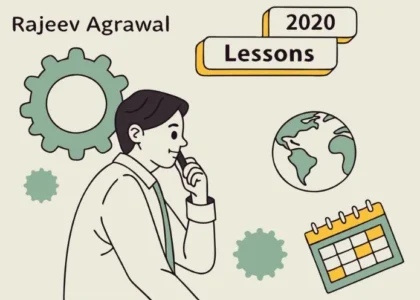I wrote an article recently on “What Matters in Investing”. In that article, I listed out the key aspects that are required to be successful in investing. In the next few articles, I will be doing a deep dive into each of these aspects. Today we will focus on the importance of Having Patience. These articles will be structured to answer the following:
- Why? – Why Patience is important in investing
- How? – How do we develop Patience
Why?
In my mind, Patience and perseverance are essential attributes for success in any endeavor. Investing is even more important because of the significant role luck plays in the short-term. Besides, given the ease with which one can act in the market (click of a mouse), it is even more important to understand the benefits of patience:
- Tax benefits: In almost all countries, the government rewards patience by having higher taxes on short-term capital gains as compared to long-term capital gains. Take advantage of it.
- Reduces mistakes: The natural bias of humans is to act. So when we hear an idea about buying a new stock, we are more worried about what would happen if we don’t buy – we may miss a great opportunity (loss aversion bias). This causes investors to have too many stocks in their portfolios. few weeks/months later these same investors don’t have the slightest inkling of why those stocks were bought in the first place, and, have no idea what to do next with them. I recently saw an investor’s portfolio with 80+ stocks in that portfolio and almost all positions were of similar size!
- Develops conviction: A deep understanding of the company, its business model, and its ecosystem can help investor build strong conviction about the company. On-going diligence helps one understand how the company is reacting to various exogenous and endogenous events. With conviction an investor can act decisively in either buying a meaningful chunk or leaving the stock alone. Conviction will allow an investor to hold on to a position when the stock market is in turmoil. However, building conviction requires patience and working through the tedious process that is investing.
How?
While most investors realize that patience is important in investing, they struggle to develop it. We have found that a sound investing process helps us be more patient. Some of the steps in our process that have made us more patient include:
- Do extensive diligence: One of the simple rules we use, before we buy any company, is whether we have read at least 10 Annual Reports of the company. Why 10 Annual Reports?
- Helps us assess a company’s performance through the peaks and troughs of a business cycle.
- Helps us assess our interest in the company. If we can’t sit and read 10 Annual Reports, the opportunity is unlikely to be interesting.
- Helps us slow down and look at a new idea deeply rather than react immediately.
- Look at our alternatives: Before we buy into a new idea, we compare this new idea with the ideas we already have in our portfolio. We have a higher threshold for a new idea to get into the portfolio than if we were added to an existing position. The main reason for the higher threshold is that an existing position is likely to be more familiar than a new position. Similarly, when we want to sell a position, we will look at what are the alternative positions that can be sold. This allows us to force rank and sell the least interesting position. While most investors look down upon cash, we consider cash as a very important position because of the optionality it provides to us when the prices fall.
- Have simple thumb rules: Some of the thumb rules that help us be more efficient with our time include:
- Don’t buy or sell when the markets are open: This rule comes from a famous investor, Mohnish Pabrai. We find that if we put a buy or sell order when the markets are open, we are influenced by the latest market price movement. Besides, because of our desire to complete the buy/sell, we tend to chase the market.
- Don’t look at market prices too often: Looking at market prices often, causes us to expend a lot of emotional energy on either elation or dejection. Warren Buffet’s famous dictum should always be remembered, “ The market is there to serve you, not instruct you.”
- Outline our investing thesis: For every investment we make, we have an investment thesis. While this thesis goes through iteration as new information becomes available, it helps quickly re-familiarize us, when we are wondering why a position is in our portfolio.
- Investment Journal: We have found the practice of writing down our thoughts on any myriad of things related to stock investing very helpful:
- It takes the thought which is occupying our mental horsepower onto paper thus freeing it to do more useful work.
- We can read those thoughts later and amuse ourselves. More importantly, they provide good feedback mechanisms on what we are doing well and where we need to improve.
- It helps temper down our natural bias to act.
I look forward to covering other aspects of What Matters in Investing in the Future articles.
show less











